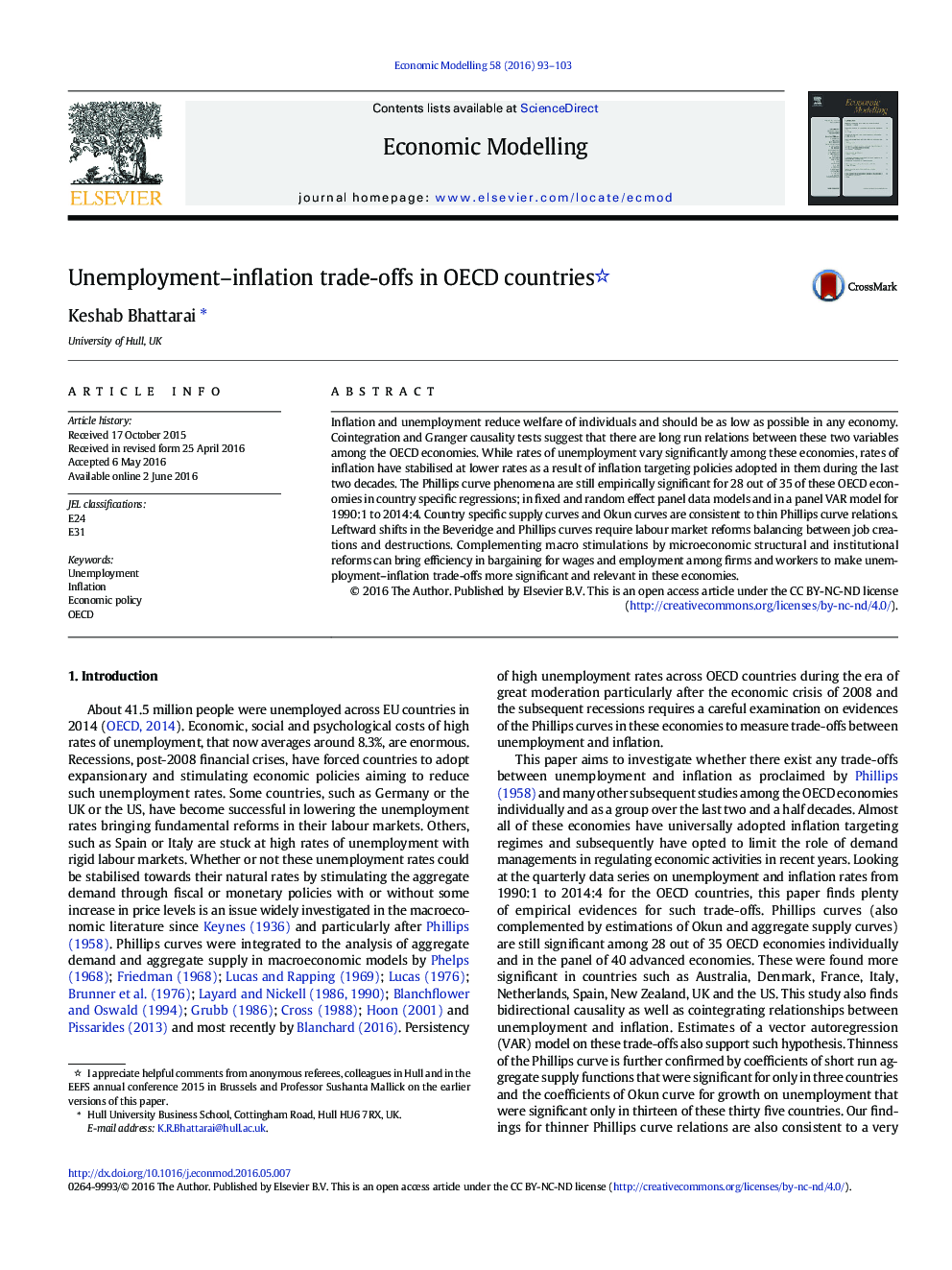| Article ID | Journal | Published Year | Pages | File Type |
|---|---|---|---|---|
| 5053465 | Economic Modelling | 2016 | 11 Pages |
â¢Inflation and unemployment reduce welfare of individuals and should be as low as possible in any economy.â¢Cointegration and Granger causality tests suggest there are long run relations between these two variables among the OECD countries.â¢Phillip's curve is empirically significant in 28 out 35 OECD countries and in the random effect, fixed effect and dynamic panel data models of 40 advanced economies during 1990:1 to 2014:4 period. Okun curve and aggregate supply curves complement it.â¢VAR and impulse responses were significant.â¢Reduction in unemployment rates require complementing macro stimulations by microeconomic structural and institutional labour market reforms to contain the mark up power of firms and unions and to shift Phillips or Beveridge curves towards left.
Inflation and unemployment reduce welfare of individuals and should be as low as possible in any economy. Cointegration and Granger causality tests suggest that there are long run relations between these two variables among the OECD economies. While rates of unemployment vary significantly among these economies, rates of inflation have stabilised at lower rates as a result of inflation targeting policies adopted in them during the last two decades. The Phillips curve phenomena are still empirically significant for 28 out of 35 of these OECD economies in country specific regressions; in fixed and random effect panel data models and in a panel VAR model for 1990:1 to 2014:4. Country specific supply curves and Okun curves are consistent to thin Phillips curve relations. Leftward shifts in the Beveridge and Phillips curves require labour market reforms balancing between job creations and destructions. Complementing macro stimulations by microeconomic structural and institutional reforms can bring efficiency in bargaining for wages and employment among firms and workers to make unemployment-inflation trade-offs more significant and relevant in these economies.
